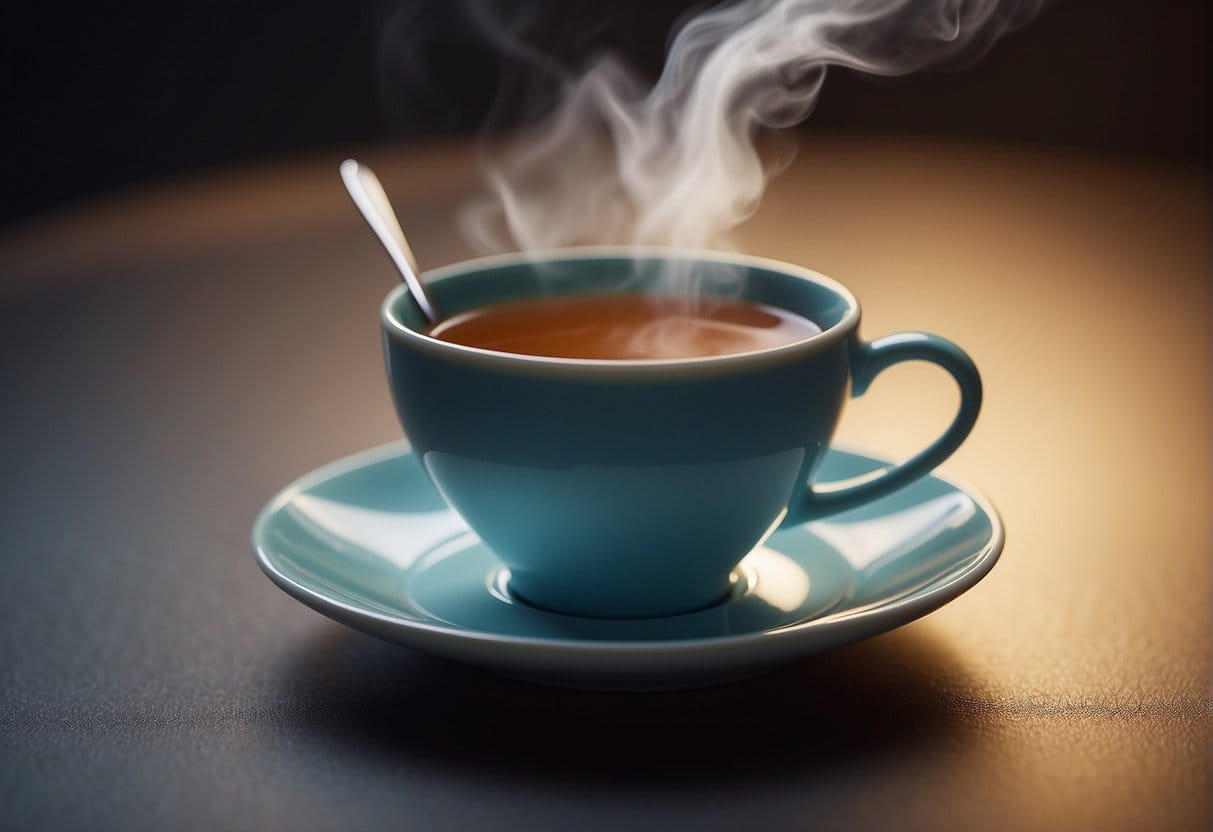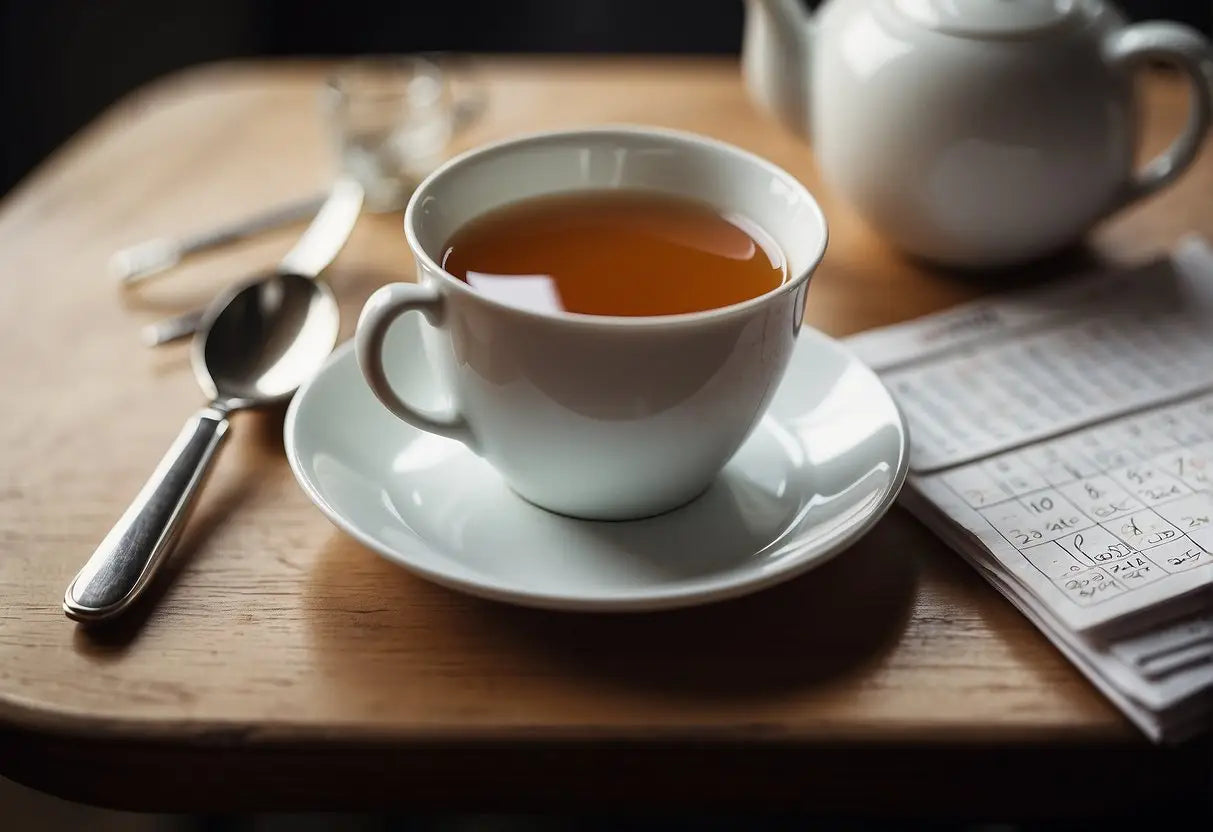When Can I Drink Tea After Tooth Extraction
After a tooth extraction, it's crucial to manage what you drink to avoid disrupting the healing process. When considering tea, it is recommended to wait 24 to 48 hours before consumption to allow the blood clot to form properly in the extraction site.
Immediately After Surgery (0-24 hours):
- Avoid any hot beverages, including tea.
- Hot liquids can increase the risk of bleeding and dislodge the blood clot.
24-48 hours Post-Extraction:
Bestsellers
- You may start to sip lukewarm or cold tea.
- Steer clear from using straws as the suction can disturb the clot.
Tea Selection Post-Surgery:
- Herbal teas: May promote healing due to their anti-inflammatory properties.
- Black and green teas: Contain antioxidants but consume with caution due to caffeine content.
Points To Remember:
- No hot drinks for the first 24 hours.
- After 24 hours, tea should be lukewarm, not hot.
- Avoid using a straw.
- Choose herbal teas for their soothing qualities.
Initial Post-Surgery Period

After tooth extraction, it's essential to follow specific guidelines to ensure proper healing, especially when considering when to drink tea or other beverages.
Immediate Hours Following Extraction
- Temperature: You must only consume cold or lukewarm beverages immediately after the procedure. Hot beverages can increase the risk of bleeding by promoting blood vessel dilation at the site of the extraction.
- Suction: Avoid using a straw as suction can dislodge the blood clot forming in the socket, leading to complications like dry socket.
First 24 Hours After Surgery
- Activity: Keep your physical activity to a minimum. This will help in reducing bleeding and aid in the formation of the clot.
- Beverage Choices: Stick to drinking water or cold tea. Adding milk or sugar to your tea can introduce bacteria to the mouth and should be avoided for the first day.
Types of Tea and Their Effects
After a tooth extraction, it's important for you to choose your beverages carefully to avoid complications.
Herbal Tea Considerations
Chamomile Tea: Often recommended for its soothing properties, chamomile tea can help reduce inflammation. However, make sure it's lukewarm before consumption to prevent irritating the extraction site.
Mint Tea: Has a cooling effect and may help with fresh breath but should not be too hot. Avoid adding sugar which can contribute to bacterial growth.
Black and Green Tea Suggestions
Black Tea: Contains tannins that may aid in blood clot formation, crucial after a tooth extraction. Always drink it lukewarm and without additives like lemon or sugar that can erode the blood clot.
Green Tea: Renowned for its antioxidants, it must be consumed lukewarm. Exercise caution as it can interfere with blood clotting if consumed in large quantities.
Beverage Temperature and Healing
After a tooth extraction, your mouth will be sensitive and the clot at the extraction site is vulnerable. It is crucial to maintain an environment that promotes healing.
Optimal Temperature for Healing
Cold Beverages:
- Can help to reduce swelling and numb the area, which may alleviate pain.
- It’s recommended to consume cool but not overly cold beverages to avoid any discomfort or damage to the sensitive tissues.
Room Temperature Beverages:
Lao Ban Zhang
- Are generally safe to consume.
- Help avoid irritation or disruption of the blood clot that is essential for healing.
Risks of Hot Beverages
- Increased Risk of Bleeding: Hot beverages can cause the blood vessels to dilate, leading to a higher risk of bleeding.
- Dislodging the Blood Clot: Excessive heat may lead to the breakdown of the blood clot, which is essential for healing, resulting in a painful condition known as dry socket.
Note: Avoid using a straw as the suction can dislodge the blood clot regardless of beverage temperature.
Nutritional Benefits of Tea

Tea, a comforting and aromatic beverage, also offers you several nutritional benefits. It contains polyphenols, which are natural compounds with antioxidant properties. These antioxidants help in combating cellular damage and reduce inflammation.
| Nutrient | Benefit |
|---|---|
| Catechins | Support heart health and may reduce cholesterol. |
| Flavonoids | Assist in the maintenance of body functions. |
| Manganese | Aids in bone development and wound healing. |
| Caffeine | Provides a mild stimulant effect. |
| Theanine | Promotes relaxation and concentration. |
Furthermore, if you are interested in hydrating yourself, tea is an excellent choice as it is predominantly water. Even though tea provides less hydration than pure water, it is still a beneficial drink to keep you hydrated.
Drinking tea also introduces certain vitamins and minerals to your diet. While the quantity might be small, every bit contributes to your daily nutritional needs. Vitamins such as vitamin C, found in some herbal teas, can support your immune system and skin health. Trace amounts of minerals like potassium, which is vital for heart and muscle function, may also be found in tea.
Lastly, varying the type of tea you drink expands the nutritional variety. For instance, green tea is rich in epigallocatechin gallate (EGCG), a potent antioxidant, whereas black tea provides theaflavins, another group of antioxidants. Each type of tea has its unique profile of compounds, providing you with an array of healthful options.
Hydration and Oral Health
Maintaining proper hydration is essential for your overall oral health, particularly after undergoing a tooth extraction. When you're well-hydrated, your body is better equipped to produce saliva, which is crucial for:
- Neutralizing acids that can cause tooth decay.
- Washing away food particles and debris.
- Reducing oral bacteria growth, which can lead to infections.
After a tooth extraction, it's important to avoid hot beverages like tea, as they can dissolve the blood clot that's forming in the socket, a condition known as dry socket. It's generally advisable to wait at least 24 to 48 hours before having a warm cup of tea. Meanwhile, you should focus on staying hydrated with the following:
- Cold or lukewarm water: It's safe and aids in the healing process.
- Non-acidic, sugar-free drinks: Protects against additional tooth decay.
You should also avoid using a straw, as the suction can dislodge the necessary blood clot in the extraction site. Instead, drink directly from the cup or use a spoon, if needed.
Remember, your body's hydration level significantly impacts healing. Keeping hydrated ensures a smooth recovery after a tooth extraction, minimizes complications, and supports the overall health of your mouth.
Addressing Dry Socket Risks
After a tooth extraction, dry socket is a potential complication you need to be cautious about. This painful condition occurs when the blood clot at the extraction site fails to form or dislodges prematurely, exposing the bone and nerves.
To minimize the risk of dry socket, follow these guidelines regarding tea consumption:
- Wait at Least 24 Hours: Give your mouth time to form a stable blood clot. Drinking tea too soon can increase the chances of clot disruption.
- Avoid Hot Beverages: For the first 48 hours, you should steer clear of hot drinks as they can dissolve the blood clot. Opt for lukewarm or cool tea instead.
| Do's | Don'ts |
|---|---|
| Drink lukewarm or cool tea | Drink hot tea |
| Use a straw after 24 hours to minimize suction | Use a straw within the first 24 hours |
| Sip gently | Sip vigorously |
- Stay Hydrated: Keeping hydrated is essential for healing, but ensure your tea is caffeine-free as caffeine may cause dehydration.
Remember, your recovery should be your priority; adjust your tea-drinking habits temporarily to ensure a smooth healing process. If you experience severe pain or suspect a dry socket, contact your dentist promptly.
Incorporating Tea Back into Diet

After a tooth extraction, it is important to reintroduce tea into your diet gradually, observing your body's response to ensure healing is not disrupted.
Gradual Introduction Protocol
- Initial 24-48 Hours: Avoid tea as it can disrupt the clotting process.
- Day 3 Onwards: Begin with lukewarm, weak tea to test your tolerance.
- Day 5 Onwards: If there is no discomfort, you can slowly start having your regular tea, ensuring it is not too hot.
Monitoring Symptoms Post-Tea Consumption
- Check for Bleeding: If you notice any bleeding, stop tea consumption immediately and consult your dentist.
- Pain and Discomfort: Any increase in pain or swelling after drinking tea may indicate that your extraction site is not ready for hot beverages.
Frequently Asked Questions
Following a tooth extraction, it's important to consider the timing and type of beverages you consume to ensure proper healing. This list of FAQs addresses common concerns about drinking tea and other beverages post-surgery.
How long should I wait before having hot beverages like tea following a tooth extraction?
You should typically wait at least 24 hours before consuming hot beverages like tea. This will allow the blood clot to form and begin the healing process.
What types of tea are recommended after undergoing a tooth extraction procedure?
After the initial 24-hour period, opt for warm tea rather than hot. Caffeine-free herbal teas are preferable, as they are less likely to interfere with the healing process.
Are there any restrictions on drinking beverages other than water post-tooth extraction?
For the first 24 hours, you should avoid alcoholic, caffeinated, carbonated, or hot beverages. Stick to water or diluted fruit juice to stay hydrated.
When is it safe to consume coffee or similar warm beverages after having a tooth extracted?
Like with tea, you should wait at least 24 hours before drinking coffee. After that, warm coffee is permissible, but avoid it if it causes discomfort.
Can I drink cold tea after having my wisdom teeth removed, and if so, when?
Cold tea may be consumed after the initial 24 hours, as long as it doesn't contain caffeine. The cold can help soothe the extraction area but make sure it's not too cold to avoid discomfort.
What guidelines should I follow regarding fluid intake the day after a tooth extraction?
On the day following a tooth extraction, continue drinking plenty of fluids like water and diluted juices. Warm teas and soups can be introduced gradually, provided they are not too hot.
← Older post Newer post →











